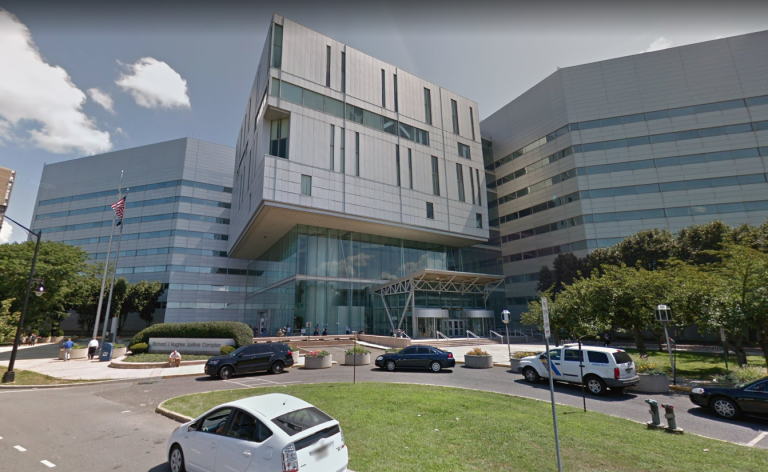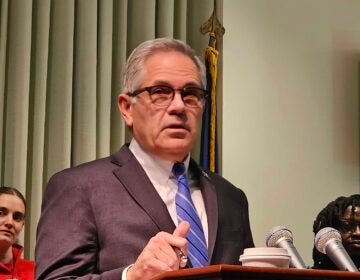N.J. Supreme Court allows testimony on whether plaintiffs are faking injury symptoms
The New Jersey Supreme Court ruled Monday that medical experts can testify about whether they believe plaintiffs are faking the symptoms of an injury for personal gain.

The Supreme Court of New Jersey, at the Richard J. Hughes Justice Complex in Trenton, NJ. (Google Maps)
The New Jersey Supreme Court ruled Monday that medical experts can testify about whether they believe plaintiffs are malingering, or faking the symptoms of an injury for personal gain.
Although such testimony was already occurring in civil cases across the state, the ruling formalizes the acceptance of testimony on malingering in New Jersey and sets standards for how it’s applied.
Critics blasted the ruling, saying that expert testimony should be based purely on observable evidence. Accusations of malingering skirt the line of becoming a commentary on a plaintiff’s character, they said.
“The doctor is coming in and saying, ‘I’m an expert, and in my opinion, the plaintiff is faking,’” said Bruce Stern, past president of the New Jersey Association for Justice. “But it is for the jury to determine the credibility of the plaintiff.”
The case centered around a woman, Alexandra Rodriguez, who said she was injured when a clothes rack fell on her in a South Jersey Walmart.
Rodriguez claimed the accident left her with painful injuries, and she sued Walmart for damages.
During the trial, Dr. Benjamin Mark, a neurologist testifying for Walmart who had briefly examined Rodriguez and reviewed some of her medical records, said “there was some observations that would be compatible with symptom enhancement or magnification.”
The jury found in favor of Walmart.
Rodriguez appealed the verdict, saying in part that the trial judge should not have allowed testimony that suggested she lied about the severity of her injuries because it was an opinion about her credibility, which is outside the bounds of expert testimony.
A New Jersey appeals court agreed, writing in its opinion that although “malingering” and similar disorders are scientifically grounded and can be found in medical literature, a jury might interpret expert testimony on those ideas as a not-so-subtle insinuation that the plaintiff is a liar.
“Such opinion evidence from a doctor inherently has a clear capacity to deprive a plaintiff of a fair jury trial,” the opinion read.
Observation, not opinion
The Supreme Court, in an opinion written by Justice Lee A. Solomon, overturned the appeals court ruling, finding instead that such expert testimony could be allowed in civil cases if the judge decided it was appropriate.
The court said attorneys would get the chance to argue their positions in a hearing outside the presence of the jury before a judge decided whether to admit testimony on malingering, symptom magnification, or a disorder called “somatization,” in which there is no clear cause for genuinely felt symptoms.
Testimony would have to be based on what medical experts observed, the court said, and not their personal opinions.
“Our review of the trial record reveals that there was sufficient credible evidence for a jury to conclude that plaintiff’s subjective complaints of pain were inconsistent with the objective medical evidence,” Justice Barry Albin wrote.
The ruling also noted that the original trial judge gave an explicit instruction to jurors that they — not medical experts — ultimately decided the credibility of witnesses.
Katelyn Cutinello, a partner in the law firm Cocca & Cutinello, said the ruling levels the playing field for companies or the people who are sued.
“It allows the defense to explore whether plaintiff’s symptoms and complaints are in line with the alleged diagnosis,” she said. “And it allows the defense to counter that.”
A Walmart representative concurred.
“This decision confirms that juries should be able to consider evidence a defendant believes explains plaintiff’s complaints of pain or disability when the objective medical evidence does not support their claims,” said spokesman Randy Hargrove.
Still, Stern said an accusation of malingering is a common tactic for defendants in civil cases and that this ruling is a setback for accident victims.
“The defense in any case is always: ‘The plaintiff’s not injured. The plaintiff’s malingering. The injuries are pre-existing,’” Stern said.
“It’s the rare case where a defense doctor comes into court and testifies and acknowledges that the plaintiff was injured, that the plaintiff has permanent injuries, and that they’re related to whatever the underlying traumatic event was that brought the lawsuit,” he said.
WHYY is your source for fact-based, in-depth journalism and information. As a nonprofit organization, we rely on financial support from readers like you. Please give today.




